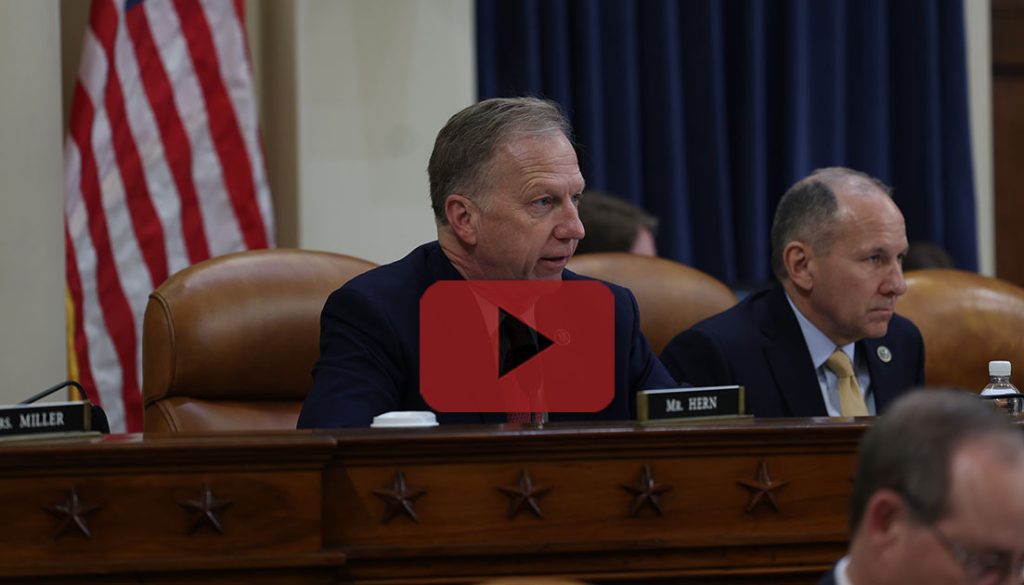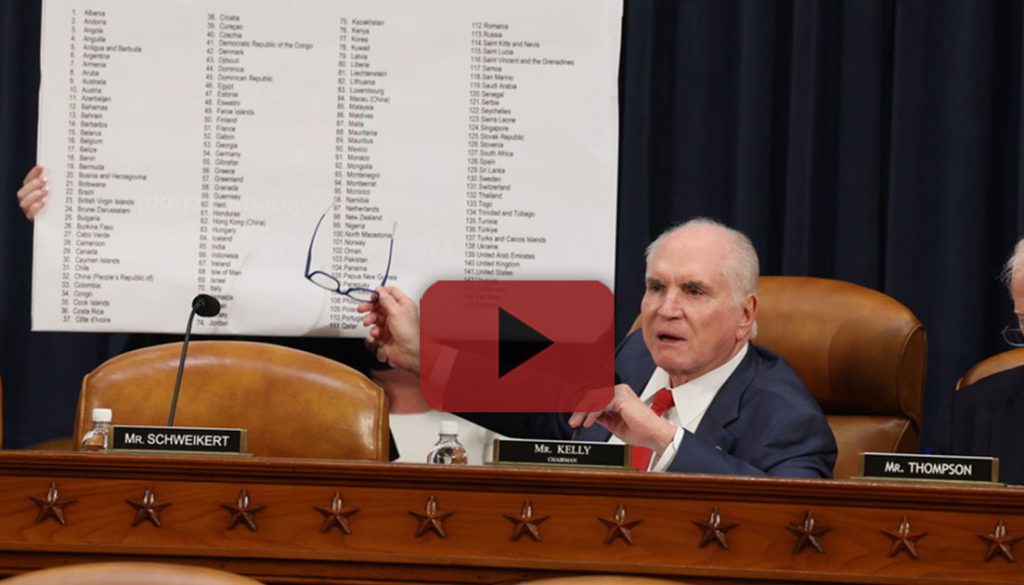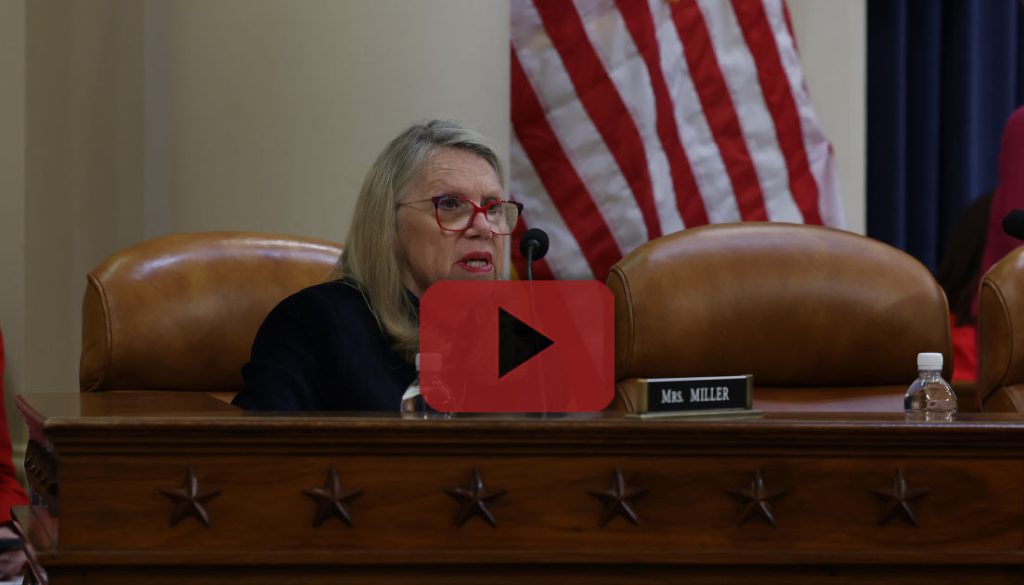Three Key Moments from Ways and Means Hearing on OECD Pillar 1 Global Tax Deal
WASHINGTON, D.C. – At a Ways and Means Tax Subcommittee hearing on a global tax deal negotiated by President Biden, Committee Republicans highlighted how the Biden Administration is failing to stand up for American interests. Witnesses testified that the deal, initiated by the Organization for Economic Cooperation and Development (OECD), would see America lose both jobs and tax revenues to foreign nations, including China.
The global tax deal punishes American workers and companies for America’s world-leading innovation and productivity. According to a Joint Committee on Taxation (JCT) analysis of tax year 2021, American companies earned 70 percent of the profits that would have been subject to reallocation and taxation by other foreign nations under the current OECD Pillar 1 proposal. Just this month, the JCT analysis also showed that in 2021, the United States would have lost up to $4.4 billion in tax revenue to foreign nations under the proposed deal, hurting taxpayers and weakening the economy.
Committee Republicans reiterated, as they did before in meetings with foreign governments and OECD leadership, in France and Germany last year, that only Congress has the authority to ratify the agreement, not President Biden’s negotiators working behind closed doors in Europe.
The Biden Administration Must Engage Congress
The Biden Administration has failed to consult with Congress on the OECD global tax deal. As a result, the deal has failed to include the voices of the American people, leading to disastrous results for American workers and businesses. In just one example of the negative consequences of the Pillar 2 portion of the global minimum tax deal, America could lose up to $120 billion in tax revenue. Tax Subcommittee Chairman Mike Kelly (PA-16) advocated for Congress to have a proactive role in negotiations to do what the Biden Administration has failed to do – protect America’s interests.
Rep. Kelly: “Help me to understand how enacting Pillar 1 in its current form is pragmatic for the U.S. economy, and more specifically, for American businesses. How does this enhance our ability to compete globally and maintain our position?…Tell us more, if you can, where is it that it helps America?”
Megan Funkhouser, international tax expert: “I think the best way to have a better outcome that makes sense for U.S. will be through congressional engagement and through opportunities like today to talk where U.S. industry sees the concerns with how it is currently drafted and work towards making it a better final package that does provide certainty and stability, because the U.S. economy benefits from the global economy.”
Global Tax Deal Surrenders America’s Global Technology Dominance
In part, the OECD Pillar 1 negotiations were initiated to prevent foreign countries from hitting American technology companies with new digital services taxes (DST). Rep. Kevin Hern (OK-01) highlighted that the deal, as currently negotiated by the Biden Administration, would not prohibit foreign nations from eliminating current DSTs or creating new ones, as is the case with Canada, which recently declined to extend an existing moratorium and is threatening to impose its DST on US sales to Canadian consumers.

Rep. Hern: “Mr. Bunn, the draft treaty lists nine DSTs and similarly discriminatory measures that are subject to be replaced by Pillar 1. The rules are written in a way that countries can adopt Pillar 1 or capitalize on the redistributed tax revenues or have the option to keep their DSTs in place. I find this leniency to be problematic since the overreaching goal is to find compromise where all DSTs and discriminatory taxes are eliminated. Does the draft treaty as written lead you to believe that all DSTs will be removed? Is there a door number two, so to speak, for new discriminatory tax measures to be implemented in the future?”
Mr. Bunn: “No, I do not think the draft treaty would eliminate all discriminatory taxes and yes, I do think that it leaves open the possibility for new either mutated forms or proliferated forms of digital services taxes.”
“U.S. Tax Base is Not a Piggy Bank for Europe”
The OECD Pillar 1 deal disproportionately impacts American jobs, economy, and tax revenue. Right now, the Biden Administration is on course to give foreign countries the right to tax American companies, even if the American company has no physical presence or local employees. Rep. Carol Miller (WV-01) reasserted that American taxpayers should not be forced to pay for the socialist government schemes of other countries.
Rep. Miller: “I’ve been acutely concerned with the actions taken by the OECD and the Biden administration’s failure to protect American interests over the course of the past several years. I traveled to the OECD with Chairman Smith and my colleagues last summer to tell these unelected globalist bureaucrats that they are going down the wrong path and the U.S. tax base is not a piggy bank for Europe’s socialist policies. These failed negotiations have left the United States in a much worse place than when President Trump started the process to protect our interests from the rising threats of the digital services taxes. Biden’s Treasury negotiators were either asleep at the wheel or actively undermining U.S. companies, which will result in our tax dollars and jobs being sent overseas.”


